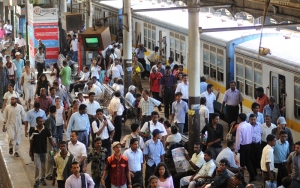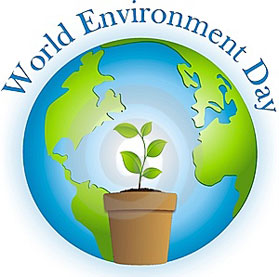
Wednesday, 11th June 2014
By Lakshman I.Keerthisinghe LLB, LLM.MPhil, Attorney-at-Law
 There is a pleasure in the pathless woods; There is a rapture in the lonely shore; There is society where none intrudes; By the deep sea and Music in its roar; I love not Man the less but Nature more. - Lord Byron-Childe Harold’s Pilgrimage-Nature
There is a pleasure in the pathless woods; There is a rapture in the lonely shore; There is society where none intrudes; By the deep sea and Music in its roar; I love not Man the less but Nature more. - Lord Byron-Childe Harold’s Pilgrimage-Nature
It was recently reported in the media that President Mahinda Rajapaksa emphasized the need to safeguard the environment for the future as it amounts to protecting the country’s children. He said everyone should focus special attention to safeguard the environment and take actions to minimize damages to the environment in achieving development targets. President Rajapaksa made these comments participating as chief guest in the 41st World Environment Day commemoration ceremony held on June 5, 2014 at the Nawarangahala auditorium at the Royal College in Colombo.
This year has been named as the International Year of Small Islands and Developing States (SIDS) and the World Environment Day events will focus on ‘Small Islands and Climate Change’ with the theme “Raise Your Voice Not the Sea Level.” Sri Lanka, although not under the SIDS, being an island, is highly vulnerable to the impact of climate change and sea level rise. The Ministry of Environment and Renewable Energy organized the main event under the patronage of the President.
Speaking at the ceremony further, the President said Sri Lanka is leading in protecting the environment when compared to other countries in the Asian region, and all should determine to make Sri Lanka the country that emits the least amount of carbon dioxide in future. The country’s scientists have the responsibility to explore systems and strategies to minimize emission of carbon dioxide.
The President further said that this year’s World Environment Day theme “Raise Your Voice Not the Sea Level.” is very important, timely and relevant as Sri Lanka is also an island susceptible to climate changes. He noted that in 2010, the government has prepared an action plan to successfully face the natural disasters. The government has established the Sustainable Energy Authority to encourage the nation for generation of alternative power sources. He urged the people to protect the environment around them in order to lead a life free of various menaces such as dengue.
Special stamp
At the ceremony, the President recognized the Royal College, Colombo for the contribution the school has made for the protection of the environment. The Postal Department issued a special stamp and a first day cover to mark World Environment Day and Postal Services Minister Jeevan Kumaratunga presented the first copy of the stamp to the President. President Rajapaksa awarded prizes to winners of the Climate Change Art Competition and the Merit Award to the Sobha Chalana Sithuwam Short Film Competition.
The President also handed over Merit Awards to the winners of the Salaroo Environment Television Short Advertisement Competition organized by the Central Environment Authority and prizes to winners of the Suwasara Thaksalawa program. The President presented scholarships to children of gem mine workers who are pursuing their studies and also awarded prizes to winners of the Prison Inmates Art Competition. An Exhibition which presented creations from various divisions of the Environment Ministry was also organized in parallel to the event.
 t is noteworthy that this year (2014) Sri Lanka ranked 69th in Environment Performance Index (EPI). The EPI which is a Global Environment Assessment index, is an exhaustive environmental impact assessment study made annually by the Yale University USA. India stands in 155th, Bangladesh 169 and Pakistan 148 in the EPI. A significant fact is Sri Lanka has defied global trend in air pollution and has shown no deterioration of the ambient air quality. Despite the steady and sharp increase in the vehicular population, which has seen a 33 per cent increase over the past four years Sri Lanka has prevented any slide in the quality of air. This encouraging achievement is attributed to the stringent vehicle emission testing program introduced by Legislation in 2008.
t is noteworthy that this year (2014) Sri Lanka ranked 69th in Environment Performance Index (EPI). The EPI which is a Global Environment Assessment index, is an exhaustive environmental impact assessment study made annually by the Yale University USA. India stands in 155th, Bangladesh 169 and Pakistan 148 in the EPI. A significant fact is Sri Lanka has defied global trend in air pollution and has shown no deterioration of the ambient air quality. Despite the steady and sharp increase in the vehicular population, which has seen a 33 per cent increase over the past four years Sri Lanka has prevented any slide in the quality of air. This encouraging achievement is attributed to the stringent vehicle emission testing program introduced by Legislation in 2008.
The EPI is a collaborative project between the Yale Centre for Environmental Law and Policy (YCELP) and the Centre for International Earth Science Information Network (CIESIN) at Columbia University. It is supported by the World Economic Forum. The EPI calculates and aggregates 20 indicators that reflect environmental data at the national level of each country. These indicators in turn are combined into nine issue categories, each of which fit into one of two overarching objectives Environmental Health and Ecosystem vitality. Environmental Health includes Health Impacts, Air Quality, Water and Sanitation.
The Ecosystem Vitality takes account of Water Resources, Agriculture, Forests, Fisheries, Biodiversity and Habitat, Climate and Energy. EPI index measures Environmental and Ecosystem Vitality to compare and identify the best protectors and worst offenders of the environment in the world. While health impacts, air quality water and sanitation make up the criteria to measure Environment Health, Ecosystem Vitality is measured by quality of water resources, agriculture, forests, fisheries, biodiversity and habitat, climate and energy. Sri Lanka’s overall environmental performance is improving and the country has been ranked as a modest performer according to a study on global environment released during this year’s World Economic Forum in Davos, Switzerland.
It is to be noted that the Environmental Performance Index (EPI) is a method of quantifying and numerically marking the environmental performance of a state’s policies. This index was developed from the Pilot Environmental Performance Index, first published in 2002, and designed to supplement the environmental targets set forth in the United Nations Millennium Development Goals.
Environmental sustainability
The EPI was preceded by the Environmental Sustainability Index (ESI), published between 1999 and 2005. Both indexes were developed by Yale University (Yale Centre for Environmental Law and Policy) and Columbia University (Centre for International Earth Science Information Network) in collaboration with the World Economic Forum and the Joint Research Centre of the European Commission. The ESI was developed to evaluate environmental sustainability relative to the paths of other countries. Due to a shift in focus by the teams developing the ESI, the EPI uses outcome-oriented indicators, then working as a benchmark index that can be more easily used by policy makers, environmental scientists, advocates and the general public.
In the 2012 EPI ranking, the top five countries were Switzerland, Latvia Norway, Luxembourg, and Costa Rica. The bottom five countries were South Africa, Kazakhstan, Uzbekistan, Turkmenistan, and Iraq. The United Kingdom was ranked in 9th place, Japan 23rd place, Brazil 30th, the United States 49th, China 116th, and India came in 125th. The top five countries based on their Pilot Trend EPI were Latvia, Azerbaijan, Romania, Albania and Egypt. This year while Switzerland remains on top, United Kingdom has fallen to the 12th place with United States falling to the 55th place.
In the Asian region, Sri Lanka occupies the foremost place being ranked as 69th, while India occupies the 155th place. Russia and China occupy the 73rd and 118th places. Thailand and Laos are in 78th and 127th places with Bhutan and Nepal at 103rd and 139th places. Bangladesh is in the 169th place with Pakistan in the 148th place. In comparison with other South Asian countries, Sri Lanka probably makes a greater effort to conserve its environment. There are a series of questions concerning current challenges for environmental conservation, such as deforestation, freshwater pollution, air pollution, noise pollution, soil erosion, wildlife poaching, coastal degradation, and mangrove reduction in Sri Lanka.
Natural forest resources
Environmental conservation is a broad theme which is primarily focused on preservation and improvement of the environment. In addition, it includes activism and lobbying in order to protect natural environmental and ecosystems.
At the present time, globally a large number of international institutions are working to conserve the environment more than ever due to the threats which human have created on the natural environment. Sri Lanka is an island which has been identified as one of the top biodiversity areas in the Asian region.
Sri Lanka’s natural forest resources are amongst the most floristically prosperous in Asia and it has the highest density of species diversity.
However, recently anthropogenic threats to Sri Lanka’s forest and other natural resources (e.g., coastal, rivers, soil, fauna, flora, etc.,) have increased exponentially. While Sri Lanka can be happy to have achieved the foremost place in Asia on the EPI ranking, Sri Lanka needs to take positive action to protect the nation’s environmental resources for the sake of current and future generations as the President very correctly observed thereby making our motherland the most environment friendly in the world. As Lord Byron said ‘I love not Man the less but Nature more.’
From : http://www.dailynews.lk/?q=features/sri-lanka-tops-environment-assessment-index-asia




